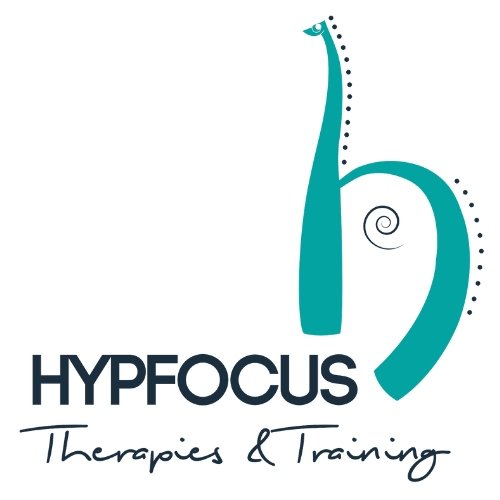Signs Your Nail Biting Has Become Problematic
Nail biting is one of those sneaky habits that often starts without much thought. Maybe it began during a stressful week at school or while zoning out during a long meeting. Over time, it can become a go-to reaction anytime tension hits. For many people, it’s a way to cope with boredom, anxiety or just restlessness. It doesn’t always feel like a big deal, especially when we see others doing it too.
But there comes a point where nail biting stops being just a quirky, harmless habit and starts causing more trouble than it’s worth. When it affects daily comfort, appearance or emotional wellbeing, it might be time to take a closer look. It’s easy to brush it off or cover it up with a bit of nail polish or a hand-in-pocket strategy. But real change usually starts with awareness, knowing what to look for and what those signs could mean.
Physical Signs Of Problematic Nail Biting
One of the first signs that nail biting might be crossing the line is visible damage. It goes beyond short nails. You may start noticing split skins around the cuticles, painful hangnails or nails that grow back unevenly. Some people end up biting so far down that the fingertips bleed or form scabs, which increases the risk of skin infections. All of this can make everyday tasks like typing or opening jars unpleasant or even painful.
It doesn’t stop at fingers either. Repeated biting can affect teeth and jaw muscles. Over time, the constant pressure might wear down tooth enamel or shift the alignment of your bite in small but uncomfortable ways. If biting happens without you realising it, especially during moments of stress or focus, it becomes harder to prevent the build-up of damage.
Here are a few physical red flags that your nail biting might be doing more harm than you think:
- Regular pain or tenderness around the nail bed
- Swelling or redness near the fingertips
- Signs of minor skin infections like pus or warmth
- Teeth that feel more sensitive or have changed shape
- Cracked or jagged nails, even after periods of rest
When small injuries build up and never get a chance to heal properly, that constant irritation takes its toll. And if your fingers start feeling sore more often than not, it may be time to reflect on how often you’re biting, and why.
Emotional And Psychological Symptoms
Nail biting isn’t just something you notice on your hands. It can also carry emotional weight. Many people who struggle with the habit don’t feel in control of it. That feeling can build quiet frustration or even self-judgement. You tell yourself you’ll stop next week, or after an important meeting. Maybe tomorrow. But when the urge hits again, it wins. That cycle can take a real toll on your confidence over time.
For some, nail biting becomes an automatic response to stress, worry or nervousness. It shows up during tough conversations, long commutes or while ticking off a never-ending to-do list. It may start to feel like a crutch or safety net, something familiar in moments when emotions run high.
You might also find yourself hiding your hands more, pulling sleeves down or avoiding certain social settings where you could feel judged. What begins as a personal coping mechanism can spiral into ongoing self-consciousness.
One common example people share is avoiding professional environments where handshakes are expected. That simple act can spark anxiety if you know your nails are chewed raw. It’s not that others always notice, it’s that you notice. And that internal discomfort matters. If a habit starts making you feel embarrassed or anxious around others, it’s already affecting your emotional quality of life, even in ways that feel small.
Social Impact Of Habitual Nail Biting
When nail biting becomes a part of everyday life, it doesn’t just affect how you feel, it can influence how others interact with you. For example, someone noticing your bitten nails might assume you're nervous, unprepared or dealing with stress, even if that’s not the case. First impressions matter, and the state of your hands often speaks before you do.
These assumptions can get in the way during important moments like job interviews, workplace meetings or social events where confidence counts. While it’s not fair for someone to judge you by your hands, the reality is that appearance often shapes perceptions. And for people who already feel insecure about the habit, that sense of being looked at can heighten discomfort or reinforce self-doubt.
It’s also common to start feeling out of place in situations where your hands are on display. Whether that’s reaching across a dinner table, handing over money or posing in a group photo, there’s a real undercurrent of anxiety that builds from the desire to hide. Think of it like background noise that never quite switches off, you’re constantly adjusting, avoiding or covering up.
If you’ve caught yourself skipping nail salons or turning down handshake moments to avoid drawing attention, you’re not alone. These small decisions may seem minor at the time, but over weeks or months they quietly shape how you move through social life. The challenge goes beyond just stopping the habit, it’s untangling the layers of shame and pressure that often surround it.
Knowing When It’s Time To Get Help
For some, nail biting fades away on its own after a stressful phase. But when it sticks around, deepens or feels impossible to control, that’s usually the sign it’s become something more than a surface habit. If it’s been ongoing for months or years, or if quitting has felt exhausting or unsuccessful, then it might be helpful to speak with someone who can guide the process from a different angle.
Therapy options like hypnotherapy can support habit-related concerns by working with the subconscious patterns that keep the cycle running. Many people find that nail biting isn’t just about the nails, it’s a nervous system response. Whether it’s linked to stress, social pressure or emotional overload, therapy helps create space to pause, reset and approach the issue with deeper self-awareness.
If you notice any of the following, it’s probably time to explore some support:
- You bite until your fingers hurt or bleed, and it happens regularly
- You’ve tried to quit on your own several times, and it hasn’t worked
- The habit causes embarrassment or makes you avoid certain situations
- You’re noticing it’s linked to bigger patterns of stress or anxiety
- You feel out of control when the urge hits, even during low-stress times
Getting help doesn’t mean your habit is extreme. It just means you’re ready to take a different approach, one that doesn’t rely on willpower alone. There’s nothing weak about reaching out for support. It’s a step towards taking better care of both your body and your peace of mind.
Take Control And Improve Your Well-Being
Changing a long-standing habit takes more than good intentions. It also takes compassion, especially for yourself. Nail biting often hides behind everyday stress or childhood patterns we haven’t fully shaken. The habit may be wrapped up in moments we don’t even notice, like zoning out during traffic or trying to stay calm before a difficult conversation. But when it starts getting in your way, physically, mentally or socially, it deserves attention.
Shame and frustration can add an extra layer to an already challenging loop. But the habit doesn’t define you. With the right support, change becomes more than just possible, it becomes practical. Whether it’s about finding calm in daily stress, breaking subconscious cycles or turning awareness into action, support can guide the way forward.
If you’re in Melbourne and nail biting has started to impact your life in more ways than one, it may be time to think about the kind of help that speaks to your deeper rhythms. And when it’s done with care, the shift out of old habits can bring a quiet sense of pride, one step, one hand, one day at a time.
Ready to explore a transformative approach? Hypfocus in Melbourne offers sessions designed to get to the root of nail biting habits. By working with the subconscious and addressing emotional triggers, our approach to hypnotherapy in Melbourne can help you move beyond the cycle. Take the first step toward change and see what the right support can unlock

